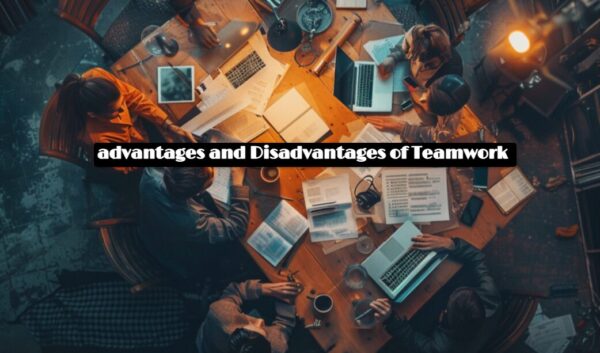
It’s a group of individuals working together to achieve a common goal. Imagine everyone working together to achieve tasks more efficiently than they could on their own. Each member of a group communicates well, has unique skills and works together to ensure that the tasks are completed correctly and without any issues. We all know what it’s like to work in a group rather than alone. We will now explore the merits and detriments of teamwork.
Teamwork: It’s a Good Idea
1. Boosted Efficiency
We know that teamwork is more efficient and effective when several members combine their special skills. You know, by concentrating on the things that each person is good at, rather than having one person do everything, everyone can speed up and improve the process. This teamwork is more efficient and productive because everyone is working towards the same goal.
2. Make Better Decisions
Different points of views in a group are essential to achieving wise conclusions. Everyone brings their own unique experience and point of view to the table, allowing for a team that is able to look at issues from different angles. This can be very helpful. This group brainstorming allows you to get well-rounded ideas and avoid the mistakes that are often made by someone working alone on a project.
3. Smart Risk Management
The diverse experiences of teams help them be good at identifying risks and managing them. People who work together to solve problems can anticipate potential issues and devise strategies for avoiding them. The risk management and planning that is done in cooperation with each other will ensure that the initiatives are successful.
4. Support System Built-in
A team is a group of people who are working together. Mutual encouragement can increase loyalty, togetherness and morale. The team members help each other to keep the team flexible and strong, even when faced with difficult circumstances. It also depends on how efficient and good the workplace is.
5. Make the Most of Your Expertise
It is common to see teams consisting of experts, and therefore the right people, managing tasks. This leads to greater productivity and better quality work. When team members focus on their strengths, they produce more than when working alone. Each person also benefits from the knowledge of others, which will help them to develop their professional skills and advance their career. It is good for newbies to learn from experts in the workplace.
6. Creative Sparks
Cooperation stimulates imagination by combining different ideas and techniques. How? Effective brainstorming in teams can lead to creative ideas, which might not have been possible from one person’s work. This synergy can lead to creative solutions and innovative thinking.
7. Learn and Grow
Teamwork is a great way to develop professionally and personally. Team members can improve their skills and knowledge by learning from each other. This environment encourages everyone to continue learning and receive constructive feedback, which allows everyone to grow. Teamwork sharpens soft skills such as communication, cooperation and conflict resolution.
8. Shared Workload
The team is divided into teams according to the strengths of each member, ensuring a balanced burden. This ensures that all aspects of a project will be addressed, and prevents burnout. We have seen that teams that make use of each individual’s skills achieve better results. This shared responsibility also inspires people to do their best.
Teamwork: Its Disadvantages
1. Slacking off
A group project can be a disadvantage if some members are slack. It happens when some people depend on others for the completion of projects. This can lead to a distortion in overall workload. It can also irritate members who are dedicated and decrease the overall output. It is important that everyone understands their roles and responsibilities.
2. Personality clashes
Why does teamwork sometimes cause personality problems? Different temperaments and working styles can cause tension and conflict that strains the teamwork. It’s not hard to see that these conflicts require strong conflict resolution techniques and a culture of respect and diversity in the team.
3. Unfair Effort
Some team members will not pull their weight in the same way, which could irritate those who are more committed. This disparity could lead to bitterness and a decrease in motivation. To ensure equal participation and hold the company accountable, clear communication, clearly defined responsibilities, and a good performance management are essential.
4. Coordination is a time-consuming task
Sometimes, teamwork requires more time for planning and meetings. Conflicts in scheduling and communication can cause project delays, which are costly for any business, firm or company.
5. Groupthink Risk
Groupthink can be a good thing, but it can also lead to bad decisions. To maintain unanimity, team members may suppress the views of other members, thereby reducing critical evaluation of ideas. To prevent groupthink open communication and an appreciation of different points of views are essential.
6. Lost Accountability
How does this work? This can lead to a decrease in employee engagement and demoralize the best employees. Overall, team motivation and responsibility are maintained by well-defined performance standards and the appreciation of success.
7. Costs Increased
It is true that teamwork can be expensive. We are talking about large investments in meeting spaces and technology. These costs are a big disadvantage for small companies, which is why they prefer to keep their work environments the same.
Quick Comparison between Advantages and Disadvantages Teamwork
| Advantages | Disadvantages |
| Improved Efficiency | The Risk of Slacking off |
| Enhancing Decision Making | Personality Conflicts |
| Effective Risk Management | Unequal Effort Distribution |
| Built-in Support Network | Time-consuming Coordination |
| Use Expertise Optimally | Groupthink is a risk |
| Creativity Increased | Individual Accountability |
| Learn about the Opportunities to Learn | Increased Operational Costs |
| Balanced Workload distribution |
